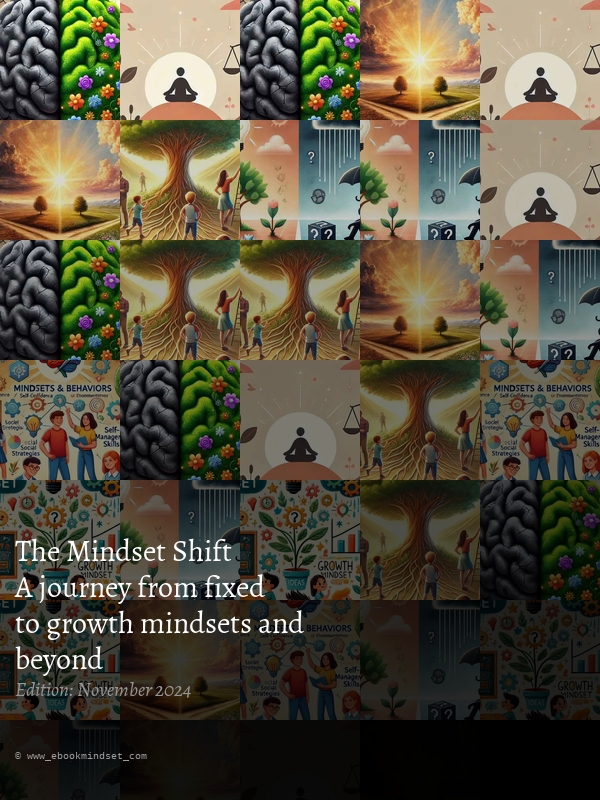Defining the Judger and Learner Mindsets
Judger Mindset
A judger mindset is characterized by a critical, reactive approach to life's challenges and circumstances. Individuals operating from this mindset often focus on identifying problems, assigning blame, and dwelling on past mistakes. This focus on negativity can manifest in various ways, hindering personal growth and creating significant obstacles in both personal and professional spheres. Negative thought patterns, such as all-or-nothing thinking (viewing situations in extremes with no middle ground), overgeneralization (drawing broad conclusions from a single incident), and personalization (taking things personally that are unrelated to oneself), are common hallmarks of a judger mindset. These cognitive distortions fuel feelings of frustration, helplessness, and a sense of inadequacy. The self-talk associated with a judger mindset often revolves around self-criticism and a lack of self-compassion. Common questions reflecting this mindset include:
- What’s wrong with me?
- Why can’t I do anything right?
- Whose fault is it?
- Why does this always happen to me?
- I should have done this differently.
- I'm a failure.
These self-limiting questions restrict possibilities, hinder personal and professional growth, and reinforce feelings of inadequacy and defensiveness. Individuals with a judger mindset often become resistant to feedback, interpreting constructive criticism as personal attacks. This defensiveness further isolates them and prevents them from learning and growing from their experiences. The constant negativity can also impact relationships, creating distance and strain due to the critical and reactive nature of their interactions.
Learner Mindset
In stark contrast to the judger mindset, a learner mindset is marked by curiosity, openness to new experiences, and a genuine desire for understanding. Challenges are viewed not as setbacks but as valuable opportunities for growth and development. Individuals with a learner mindset embrace mistakes as learning experiences, fostering resilience and adaptability. They approach problems with a solution-oriented approach, seeking collaboration and actively seeking feedback to improve their skills and knowledge. Their internal dialogue is characterized by self-compassion, encouragement, and a belief in their ability to learn and grow. Questions that commonly arise from a learner mindset reflect this positive and proactive attitude:
- What can I learn from this?
- What are my options?
- How can I improve this situation?
- What are the contributing factors?
- What resources can help me?
- What steps can I take to address this?
This growth-oriented approach fosters resilience, creativity, positivity, and a strong sense of self-efficacy. The learner mindset cultivates a willingness to seek help, collaborate effectively with others, and embrace challenges as stepping stones toward greater understanding and personal development. This proactive approach not only enhances personal growth but also strengthens relationships and contributes to a more positive and productive work environment.
The Importance of Shifting Mindsets
Shifting from a judger to a learner mindset is a transformative process with far-reaching benefits impacting various aspects of life. This shift is crucial for:
- Enhanced Problem-Solving: An open and curious mind, characteristic of the learner mindset, allows for more creative and effective problem-solving strategies. By viewing challenges as opportunities for learning, individuals can approach difficulties with a broader perspective, leading to more innovative and robust solutions. The absence of self-criticism and blame allows for a more objective assessment of the situation and the exploration of a wider range of potential solutions.
- Improved Relationships: The collaborative nature of the learner mindset fosters stronger and more meaningful relationships. Instead of assigning blame and fostering conflict, individuals with a learner mindset seek understanding and work together to find solutions. This promotes mutual respect, trust, and open communication, leading to healthier and more fulfilling relationships both personally and professionally.
- Increased Resilience: The ability to bounce back from setbacks and adapt to challenging circumstances is significantly enhanced by a learner mindset. By viewing mistakes as learning opportunities, individuals develop greater resilience and emotional strength. This ability to learn from adversity allows individuals to overcome obstacles more effectively and emerge stronger from difficult experiences.
- Greater Personal Growth: A learner mindset unlocks new avenues for self-discovery, personal development, and continuous improvement. The inherent curiosity and openness to new experiences fuels a desire for lifelong learning, leading to a richer, more fulfilling life. This continuous growth contributes to greater self-awareness, improved self-esteem, and increased overall well-being.
- Improved Productivity and Performance: In a professional setting, a learner mindset translates to increased productivity and performance. The willingness to embrace feedback, seek knowledge, and collaborate effectively enhances efficiency and leads to better outcomes. Continuous learning fosters innovation and adaptability, which are crucial in today's rapidly changing work environment.
Recognizing Your Current Mindset
The first step towards shifting from a judger to a learner mindset is cultivating self-awareness. This involves paying close attention to your thoughts, feelings, and reactions in various situations. Recognizing when frustration, defensiveness, or self-criticism arise indicates the dominance of a judger mindset. It's important to note that everyone experiences moments of judgment, but the key lies in identifying patterns and the frequency of these thoughts and behaviors. Regular self-reflection can help identify recurring thought patterns and triggers that activate the judger mindset.
Techniques for enhancing self-awareness include:
- Journaling: Regularly writing down your thoughts and feelings can provide valuable insights into your mental patterns and help you identify instances of judger thinking.
- Mindfulness Meditation: Practicing mindfulness helps cultivate awareness of your present moment experience without judgment, allowing you to observe your thoughts and feelings without getting carried away by them.
- Self-reflection exercises: Structured self-reflection prompts can guide you in exploring your thoughts, behaviors, and reactions to specific situations.
- Seeking feedback from trusted sources: Asking friends, family members, or colleagues for honest feedback on your behavior can provide valuable external perspectives.
Strategies for Shifting from Judger to Learner
Awareness and Observation
The foundation of shifting from a judger to a learner mindset is cultivating a heightened awareness of your thoughts and reactions. Actively observe your internal dialogue, noting when you engage in self-criticism, blame, or negative self-talk. Recognize the specific triggers that activate these judger thinking patterns. Maintaining a journal can be an invaluable tool in tracking these instances, allowing you to identify patterns and recurring themes in your thoughts and behaviors. This increased awareness is the crucial first step towards breaking free from negative thinking cycles and cultivating a more positive and constructive approach.
Set Up Reminders
Visual reminders can serve as powerful tools in reinforcing a learner mindset. Place inspiring quotes, images, or affirmations in visible locations – on your desk, your computer screen, or even your bathroom mirror – to serve as constant reminders of your intention to cultivate a learner mindset. These visual cues can help shift your focus towards learning and growth, particularly during moments of stress or challenge. Choose reminders that resonate with you personally and reflect the values and principles that you want to embody.
Adopt Question-Thinking
Instead of reacting impulsively, train yourself to pause and gather facts before forming judgments. Frame inquiries constructively, focusing on understanding the situation rather than assigning blame. This thoughtful approach promotes objectivity and encourages a more balanced perspective. By fostering a culture of inquiry, you open yourself up to new possibilities and cultivate a deeper understanding of the situation at hand.
Ask the Right Questions
Consciously replacing judger questions with learner questions is a transformative step. This involves reframing your internal dialogue and external interactions to promote growth and understanding. Here are some examples:
- Instead of "What’s wrong?", ask "What happened?" This shift focuses on objective observation rather than subjective judgment.
- Instead of "Whose fault is it?", ask "What can we do differently next time?" This moves the focus from blame to collaborative problem-solving.
- Instead of "Why did this happen to me?", ask "What can I learn from this experience?" This transforms a negative experience into an opportunity for growth.
- Instead of "I'm a failure.", ask "What can I improve upon next time?" This promotes self-compassion and focuses on solutions.
Practice Active Listening
Active listening is crucial in fostering a learner mindset. It involves truly hearing and understanding the other person's perspective without interrupting or judging. Focus on what the speaker is saying, both verbally and nonverbally, and seek to understand their feelings and intentions. By engaging in active listening, you demonstrate respect, build trust, and create a safe space for open communication. This fosters collaboration and strengthens relationships, promoting a more positive and productive environment.
Embrace Mistakes as Learning Opportunities
A fundamental shift in perspective is viewing mistakes not as failures but as invaluable learning opportunities. Analyzing mistakes objectively, identifying what went wrong, and learning from the experience are critical steps in personal and professional development. Rather than dwelling on self-criticism, focus on identifying areas for improvement and implementing strategies to prevent similar mistakes in the future. This mindset transforms setbacks into opportunities for growth and enhances resilience.
Seek Feedback
Actively soliciting constructive feedback is essential in identifying and addressing judger tendencies. Seeking feedback from trusted sources, such as colleagues, mentors, or friends, provides valuable external perspectives on your behavior and helps you identify blind spots in your self-perception. Approaching feedback with an open mind and a willingness to learn fosters continuous growth and improvement.
Engage in Continuous Learning
A commitment to lifelong learning is paramount in reinforcing curiosity and growth. Actively seek out opportunities to expand your knowledge and skills through reading, attending workshops, taking courses, or engaging in new experiences. This commitment fuels a passion for learning and reinforces the learner mindset, leading to greater personal and professional development.
Surround Yourself with Learners
Spending time with individuals who model a learner mindset can be highly influential in fostering this mindset within yourself. Seek out individuals who are open-minded, curious, and receptive to feedback. These individuals can provide support, inspiration, and valuable insights, reinforcing your commitment to personal growth and learning.
The Role of Leadership in Mindset Shifts
Leaders play a crucial role in fostering learner mindsets within their teams and organizations. By creating a culture of learning, growth, and open communication, leaders can significantly impact the overall mindset of their organization. Leaders who foster learner mindsets:
- Encourage open dialogue about mistakes: Creating a safe space for employees to discuss mistakes without fear of judgment is crucial. Leaders should actively encourage open communication and view mistakes as learning opportunities rather than failures.
- Celebrate learning achievements: Recognizing and rewarding employees for their efforts to learn and grow reinforces the value of a learner mindset. This creates a positive reinforcement cycle, encouraging continuous learning and development.
- Provide opportunities for collaborative problem-solving: Creating a collaborative environment where employees can work together to solve problems fosters a learner mindset. This approach promotes teamwork, creativity, and a shared sense of responsibility for problem-solving.
- Lead by example: Leaders should model a learner mindset themselves. This involves demonstrating a willingness to learn, seek feedback, and embrace challenges. Their actions speak louder than words, reinforcing the importance of a learner mindset throughout the organization.
Conclusion
The shift from a judger to a learner mindset is a transformative journey that profoundly impacts personal development, relationships, and organizational culture. By promoting awareness, curiosity, and constructive questioning, individuals and organizations unlock their potential, fostering supportive learning environments. Embracing the learner mindset equips us with the resilience and adaptability needed to thrive in a constantly changing world. It fosters continuous growth, innovation, and stronger, more collaborative relationships, leading to greater personal and professional success. The conscious effort to cultivate a learner mindset is an investment in oneself and in the future, resulting in a more fulfilling and meaningful life.




